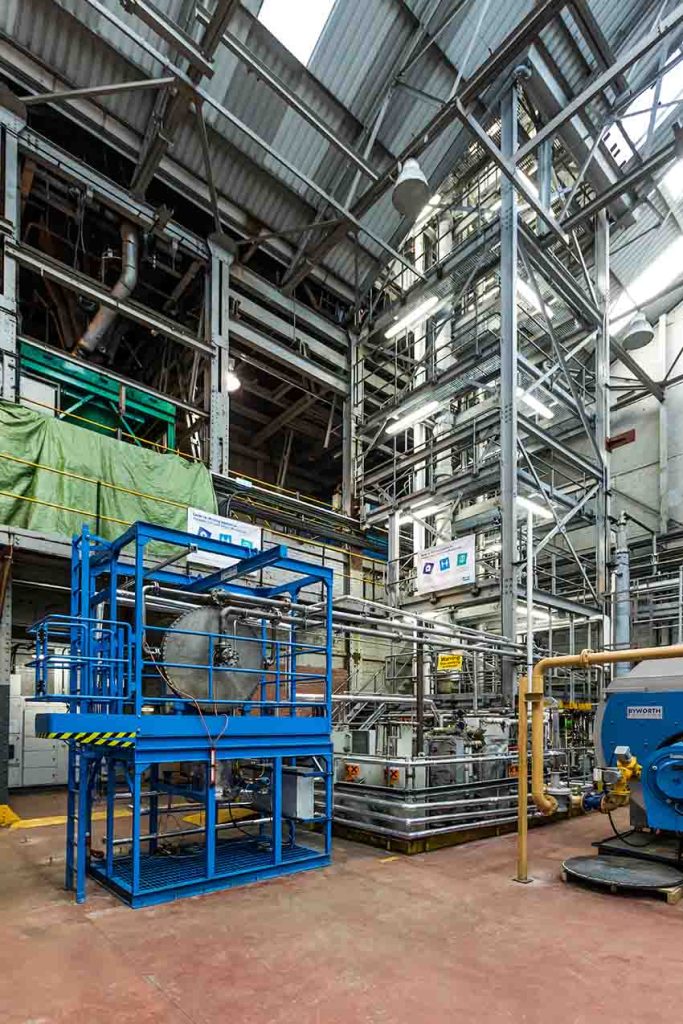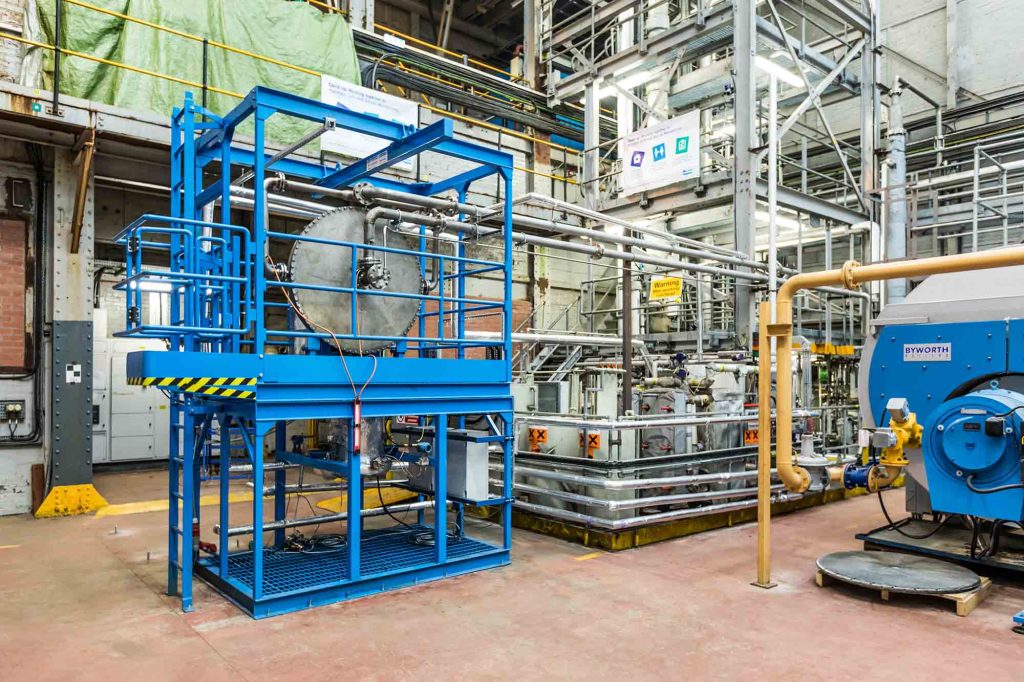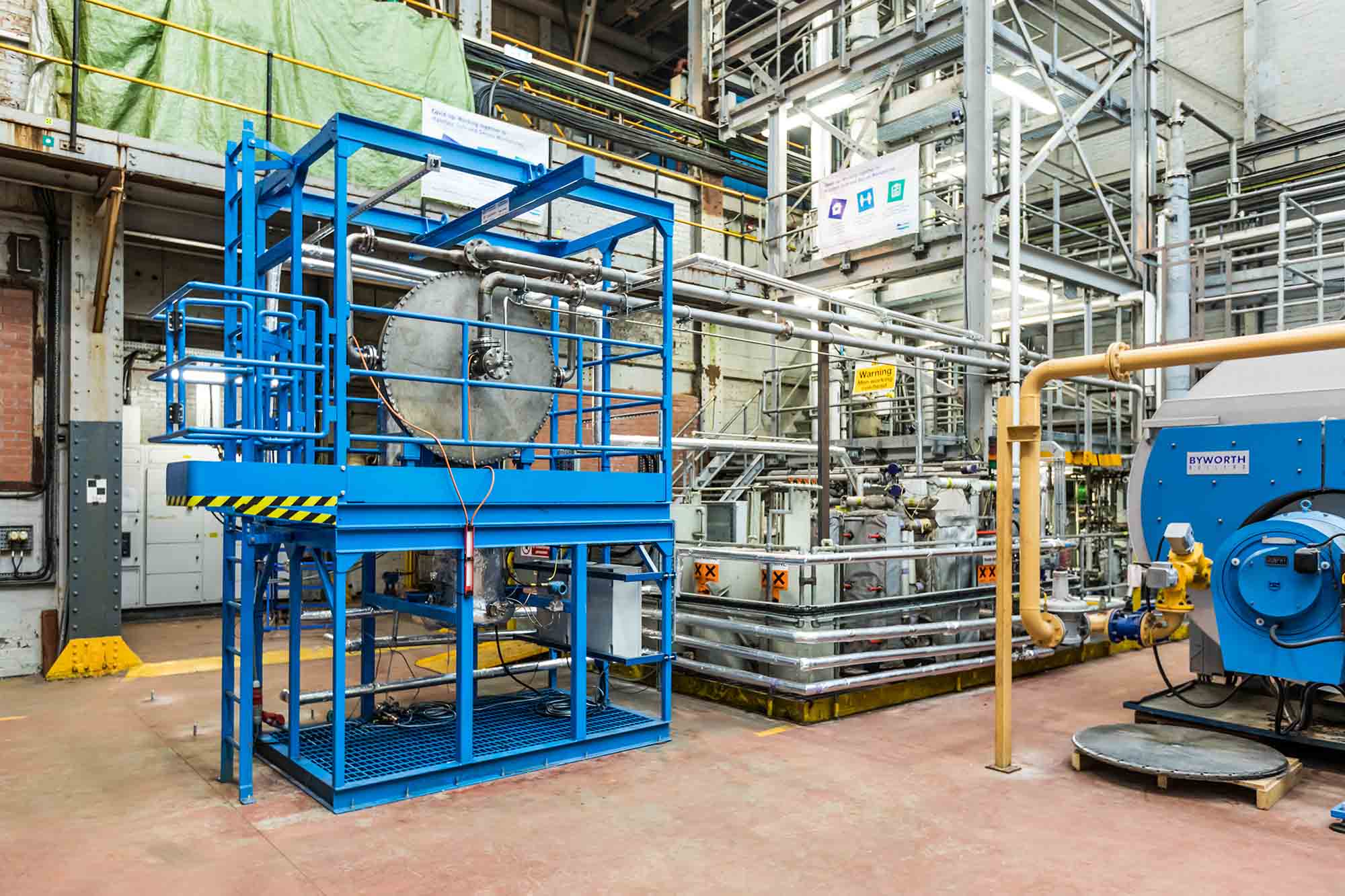Carbon Clean is a global leader in carbon capture solutions for essential hard-to-abate industries with over a decade of experience in designing, building, and operating industrial carbon capture systems. The company has 49 technology references around the world and their technology has been shown to significantly reduce the costs of carbon capture.
Founded in India in 2009, Carbon Clean moved to the UK in 2012 and is headquartered in London, with offices in India and the US. They are growing fast – doubling in size last year – to meet surging demand for innovative carbon capture solutions from heavy industries around the world.
Easy Engineering: What are the main areas of activity of the company?
Carbon Clean: Carbon Clean is focused on making carbon capture more accessible for hard-to-abate industries that have few other decarbonisation options. Industrial emissions account for 30% of total global CO2 emissions and the deadline to act on industrial decarbonisation is fast approaching. Carbon Clean’s mission is to capture 1 billion tonnes of industrial CO2 emissions by the mid 2030s.
The company has amassed a deep understanding of industrial carbon capture technologies since its inception in 2009, working with commercial and academic partners to test and validate its solutions. Its proven technologies are delivering for industrial partners around the world.
Carbon Clean’s semi-modular systems are available in standardised capacities from 10 to 300 TPD. Around 80% of the carbon capture system is modularised and containerised, resulting in a dramatic reduction in installation and on-site activity when compared to an open plant construction.

Carbon Clean’s proprietary solvent is another of its proven technologies that has been used in carbon capture projects in the UK, US, Netherlands, Sweden, Norway, Spain, and India. It has been formulated to optimise carbon capture performance using fast-reacting amines and high-capacity salts. The solvent has greater stability, lower corrosivity and lower regeneration energy requirements than the benchmark amine.
Carbon Clean is now developing the next generation of standardised, fully modular carbon capture technology, CycloneCC, which will be crucial to accelerating global deployment of CCUS. It is also working towards a Carbon Capture as a Service (CCaaS) offering, where customers pay a cost per tonne of carbon. This will further de-risk the investment for companies and ensure performance is optimised over the lifetime of the technology, by drawing on Carbon Clean’s operational expertise.
E.E: Tell us about your new products?
Carbon Clean: Carbon Clean is an innovation leader in the carbon capture sector, with over 80 active patent assets across 15 patent families covering over 30 countries. Its latest innovation – CycloneCC – has been developed to overcome past barriers to carbon capture deployment – the size and cost of carbon capture technology.
CycloneCC is 50% smaller than a conventional plant and can capture CO2 at a cost that is up to 50% less per tonne than conventional carbon capture systems. It achieves this through a combination of two proven process intensification technologies – Carbon Clean’s advanced, proprietary amine-promoted buffer salt solvent (APBS-CDRMax®) and rotating packed beds (RPBs).
CycloneCC will be pre-fabricated in fully engineered modules, delivered on a truck and installed in around eight weeks – reducing project implementation times and costly operational disruptions. Additionally, as a fully modular solution, units can be added in line with a company’s decarbonisation ambitions and investment capacity, providing an opportunity to put a ‘toe in the water’ and test carbon capture, either solo or alongside other decarbonisation solutions.
Carbon Clean is rapidly scaling CycloneCC technology to meet industry requirements. Already fully tested at 1 tonne per day (TPD) at Altrad Babcock’s Emissions Reduction Test Facility in Scotland, Carbon Clean is commissioning a number of 10 TPD units that will be operational in the coming months with select industrial partners in the UK, the Middle East and North America. 100 TPD commercialisation is also underway in North America and Europe.
As a compact and modular solution, CycloneCC is particularly suited for use with small to mid-size emission point sources and can be installed at multiple locations across a site.

E.E: What can you tell us about market trends?
Carbon Clean: The carbon capture, utilisation and storage (CCUS) sector needs to rapidly scale up if we are to meet key climate targets and global net zero by 2050.
The pace is picking up – 2022 was a landmark year for the CCUS sector with over 60 new projects added to the global CCUS project pipeline, making a total of 30 CCS projects in operation, 11 under construction and 153 in development globally. But installed capacity needs to increase 120-fold by 2050 to meet climate targets, and to achieve this we still need a favourable policy environment.
The right policies can draw in private finance, giving businesses the confidence to invest, supporting the much-needed emergence of transport networks and storage sites, and delivering the necessary regulations to enable the acceleration of CCUS deployment.
A good example of positive policy is the Inflation Reduction Act (IRA) in the US – Carbon Clean saw enquiries from industrial emitters leap by 64% following the IRA being passed into law.
The momentum created by the law’s passage, along with our existing activity in North America, led to the opening of our US office in Houston in March this year. We now expect to double our US headcount and we are developing a local supply chain to meet demand for CycloneCC, our breakthrough, fully modular carbon capture technology, in the US.
E.E: What’s coming up for Carbon Clean in 2023?
Carbon Clean: Carbon Clean is continuing to expand rapidly to meet rising demand for its innovative carbon capture solutions. We are fully focused on growth across our target markets and geographies and scaling delivery with partners. The demand for CCUS is increasing as incentives to tackle industrial emissions increase and the urgency of doing so becomes ever more apparent.

